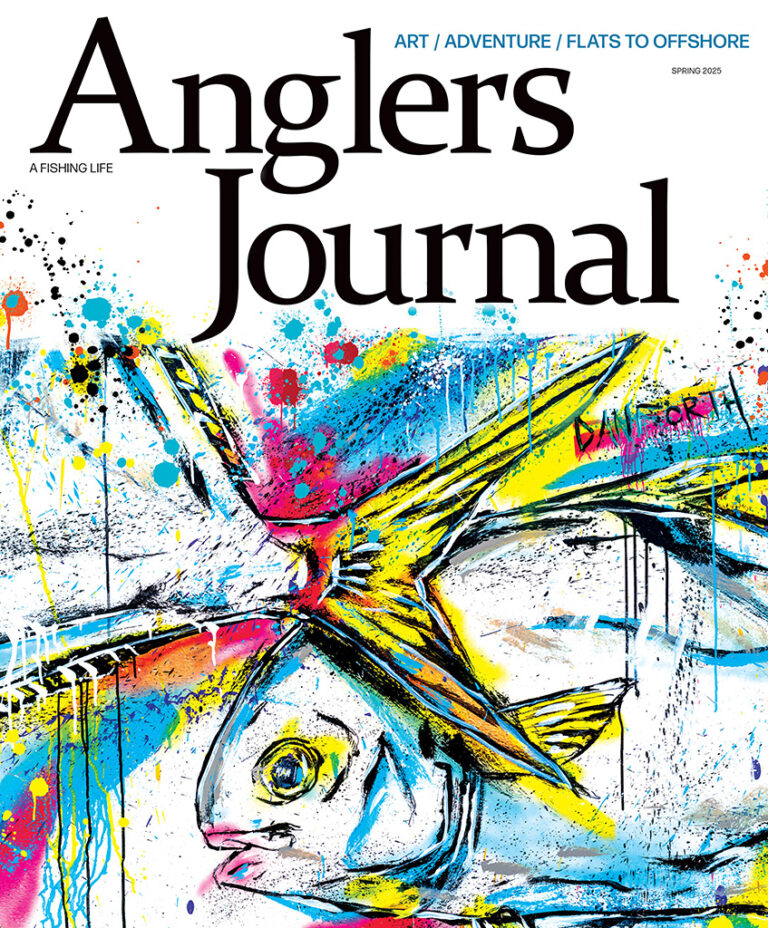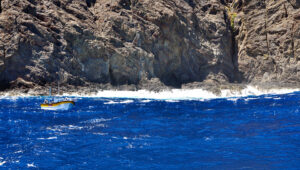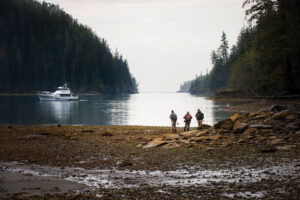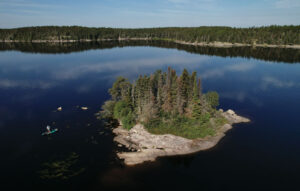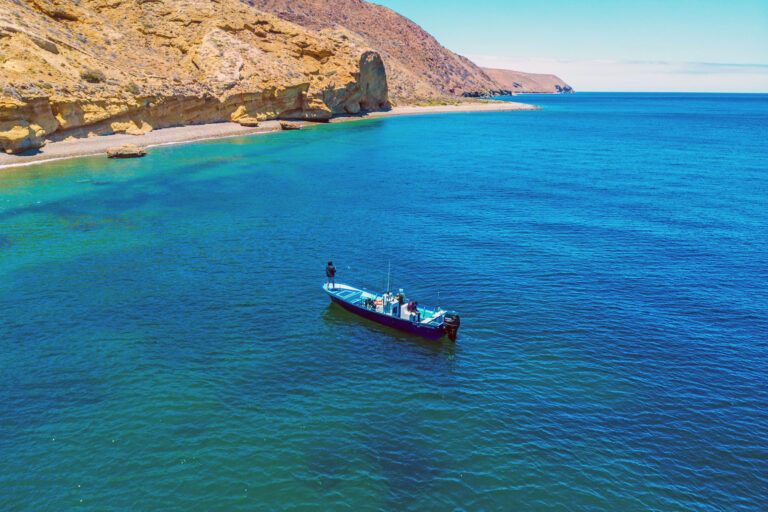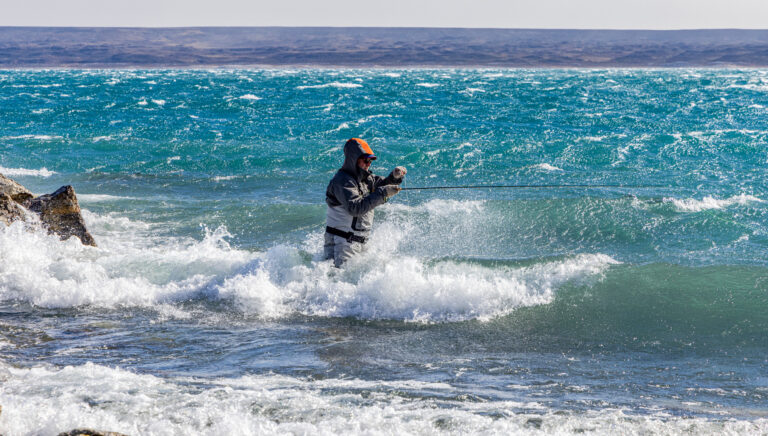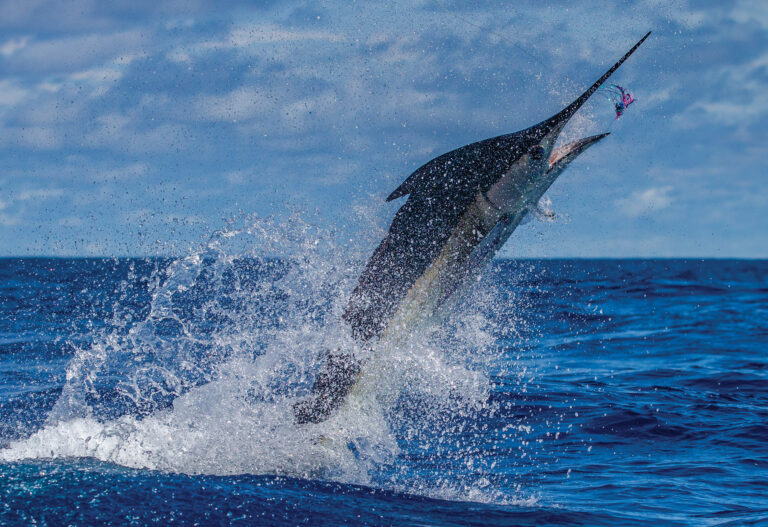 The author works a pretty little section of the Middle Fork of the Powder River, a vibrant emerald vein running through dry country.
The author works a pretty little section of the Middle Fork of the Powder River, a vibrant emerald vein running through dry country.The worst part about driving through most of Wyoming is having to look at it. The state’s office of tourism dissembles.
The pictures plastered on rest-stop brochures and online clickbait banners represent a small portion of Wyoming’s vast rectangular canvas. An accurate rendering would depict a monochromatic backdrop speckled with denuded foliage and sagebrush. But it is not the scenery itself that is vexing; it is the vague feelings that the scenery is prone to produce.
The landscape doesn’t have a focal point, which allows thoughts to tip toward the abstract. Thoughts and emotions are blithely swept along, tumbling over and over and over. It’s numbing. With no point of reference, no resolution, no established goal, I feel unsettled.
As Mike Cevoli and I drove along I-25 from Cheyenne to our turn-off point in Kaycee, I asked his opinion. “It’s barren,” says Mike, a photographer from Rhode Island who makes a living knowing what draws the eye. “I don’t get much out of it, but I know people who do.”
He told me about an acquaintance who enjoys standing and staring at swaying tufts of Midwestern wheatgrass, finding comfort and inspiration in the vastness and repetition. Still young, 30 years old, I’m not that guy. It’s a different world where we’re headed — the base of a canyon through which the river runs.
 Outlaw Cave can set a young man’s imagination to romanticizing the desperado life of yore.
Outlaw Cave can set a young man’s imagination to romanticizing the desperado life of yore.King of Campfires
I turned right when we hit the small town of Kaycee. The interstate gave way to a two-lane highway, and the highway faded into a dirt road. A perimeter of red sandstone rose out of the prairie and built a perimeter as we crept onward.
The last time I had been in this area was to see my friend Jerry Sanders, who was very sick. He was in a hospital bed that his family had placed near a large picture window in his living room. The positioning was a small comfort in that he could watch and identify the birds alighting on the feeder outside.
I sat next to the bed. Jerry fidgeted with a plastic oxygen tube placed on his white beard. He was wearing a stained white V-neck T-shirt. He struggled to talk. He said one thing that I understood clearly: “There are many good stories out there. You just have to know who to talk to and when to listen.”
Jerry Sanders was a king around campfires. He held court like few others and slowly spoke of adventure: a three-month river trip from Montana to New Orleans, a motorcycle sojourn through Afghanistan and fishing trips to places in Wyoming that are still not fully detailed on any map.
It’s not likely you ever met Jerry Sanders, but perhaps you’ve been fortunate to know someone like him. Rudyard Kipling provided a description of such men in a talk delivered nearly a hundred years ago: “Long-headed and slow-spoken and heavy — damned heavy — in the hand.”

Three Friends
The red rocks began to coruscate in the fading light. It was beautiful. I parked the truck, and Mike got out to take pictures. I could see another perched on the top of a distant hill. The truck belonged to my friend Isaiah, and it marked our destination.
Isaiah had driven up early. He worked as a fishing guide for years before seeking security and deciding to go back to school. He agreed to come on the trip before I offered an invitation. He loves rivers, especially new ones.
The last time I had seen Isaiah was at Jerry’s funeral. Isaiah was the emcee. He presided over a strange affair that prominently featured the metal canoe that Jerry had used on many river adventures. For some untold reason the actor Paul Giamatti was there, and Jerry’s family had gotten into a Faulkner-esque spat with the local undertaker. The memory was poignant and made a good story, which made me smile.

“You’re not going to believe the fishing out here,” Isaiah said when we finally got to his vantage point atop the hill.
He was wearing waders and drinking a beer. He had the same excitement as the small black Labrador retriever that bounded out of his truck bed. The excitement was justified. Outlaw Canyon cuts a vibrant vein through the arid plains. At the canyon’s base are the emerald waters of the Middle Fork of the Powder River. The fish are wild, cagey and numerous.
I set up camp among the standing skeletons of burnt trees. We built a campfire and cooked dinner. Mike lit a cigarette, and Isaiah bummed one. They started telling stories that were full of adventure. It was easy to listen to the tales, which I silently compared to my own daily dross.
I yearned for new challenges and experiences. Watching the fire curl skyward, I wondered whether my ambitions would go up in smoke, as well. These thoughts were a cold bedfellow as I climbed into my sleeping bag.

Outlaw Trout
At first light we gathered our gear and scrambled down a scree slope. In less than a mile the rock transformed into soft soil. A pine canopy filtered the early morning light. Isaiah hit the river as soon as he met it. Mike had been assigned to bring back photos for this story and for Filson, the outdoor clothing company. He quickly pulled out his camera and began following Isaiah, bounding from pool to pool.
I tied on a hopper and, 18 inches of tippet later, a nymph and looked over one seemingly perfect hole against the next. I made a short cast and, after few seconds of drift, felt my line go taught. There was a faint flash of color, and the fish dove.
While not native, the browns and rainbows in the Powder are untamed. They flee to structure at the first hint of danger and have a knack for wrapping you around rocks and downed trees. They’re wild and, with the lack of pressure, are likely to remain that way.
The water felt good against my legs, and the fishing was excellent. The trout were willing, not very fussy, and there were plenty of them. I lost track of time, and the morning quickly passed.
I looked downstream and spotted the opening to Outlaw Cave. Sometime in the 1890s Robert LeRoy Parker — widely known as Butch Cassidy — came across this cave. The story goes that Cassidy and his Wild Bunch barricaded the front and sought refuge from those who sought to stretch their necks.
How great it would be to live the outlaw life, unrestrained and constantly on high alert, rejecting the rules and making up a new game.
After a spell, Isaiah came back into view, hopping over rocks and carrying the same enthusiastic grin that he left with. Mike was trying to keep pace. “This beats anywhere I’ve ever fished,” Isaiah said. We all paused as the beauty of the moment hit us. There wasn’t another soul in the canyon.
 Fine trout fishing is found at the base of Outlaw Canyon.
Fine trout fishing is found at the base of Outlaw Canyon.Earn Your Scratches
People have told me that in order for stories to be interesting they have to follow a basic structure. At the end there has to be clean resolve. Some sort of change, some sort of victory, some sort of defeat. They need to be tied up with a bow and properly packaged so readers can easily take them home. Interesting, but that doesn’t reflect life.
And words are not always needed to tell a story. In a throwaway society that values polish and price, I’ve taken pains to seek people and things that speak philosophically. I’ve been lucky. I’ve found this quality in the mile-long stare of my Sunday afternoon drinking companion, in the wrinkled hands of my grandfather and in a threadbare jacket that constantly beckons to be taken outside.
Jerry Sanders clung tightly to his gear. Stuff that was outdated, worn and tested. He knew how far it would go. The blemishes on his rod and reel provided memories of adventure and misadventure, tales that would have been at risk of extinction had he opted for the shinier upgrade. On trips when my pack fell short, he kindly filled in the gaps. I’ve found more value in his worn carries than anything I’ve bought new.
He reminds me that life is about the living, about earning my own scratches. A few years back Sanders tossed me a well-worn fly wallet, making it clear that it wasn’t a gift but rather just “something to hold on to, until you think someone will value it more.”
 The fishing was good, and the three young men forged new stories even as they told old ones about a beloved character who was known as a king around campfires.
The fishing was good, and the three young men forged new stories even as they told old ones about a beloved character who was known as a king around campfires.Learning to Listen
We fished all day. Without announcement, the sun dipped behind the canyon’s rim. We began the uphill hike back to camp. I thought about the hollow feeling that would creep in on the drive home and the commonplace nature of the work waiting Monday morning. The struggle is maintaining interest and continually searching for points of enchantment, grace and dignity.
This is a story with seams — remembering an old friend; chasing the ghosts of the Hole in the Wall Gang, an old adolescent fantasy; three young men moving through rough, dry land, deep incised canyons, red rock and bright stars on their way to new country. At the bottom of one of the canyons runs the Powder and, in its pools, live trout dressed in colors of the old world. Down here you find meaning in a conversation around a campfire, in the sound of moving water, in the ancient petroglyphs of bears, shields, arrows and spears.
“There are many good stories out there,” Jerry Sanders said. “You just have to know who to talk to and when to listen.”

